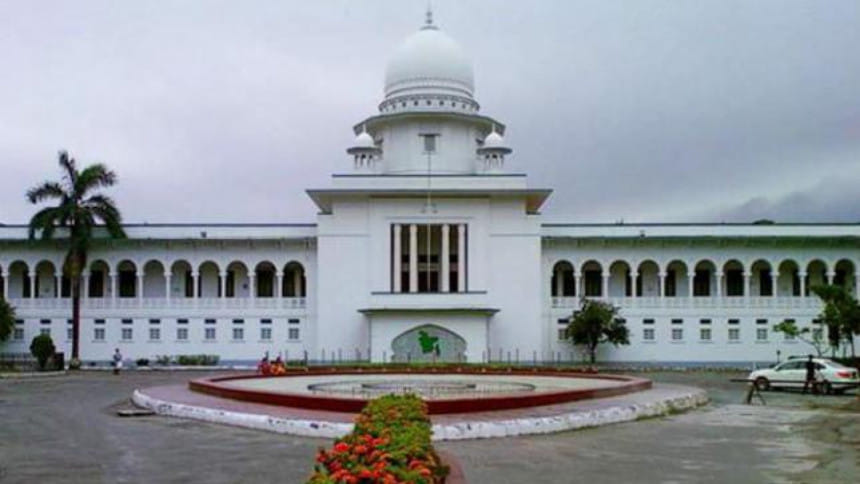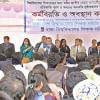Teachers can't take coaching classes

The High Court yesterday upheld the government policy framed in 2012 to stop “coaching business” by the teachers of government and private educational institutions.
This verdict means the teachers of government and private schools, colleges and madrasas cannot coach students, Deputy Attorney General Mokhlesur Rahman told The Daily Star.
The bench of Justice Sheikh Hassan Arif and Justice Razik-Al-Jalil came up with the verdict after hearing five writ petitions, including three challenging the government “Policy-2012 to stop teachers from doing coaching business in educational institutions”.
There is no illegality in "Shikkha Protishthaner Shikkhokder Coaching Banijjya Bondho Neetimala-2012", and the policy is valid in the eyes of law, as it was framed in line with the relevant law, the verdict said.
Coaching badly impacts on the mind of students and their guardians, it said.
Following an HC order, the education ministry on June 20, 2012, had announced the policy aimed at stopping the “coaching business” of teachers by preventing them from giving private tuition to students of their own institutions.
The order came after Ziaul Kabir Dulu, a guardian of a Dhaka Ideal School and College student, filed a writ in 2011, challenging the legality of running coaching centres alongside classrooms by the teachers of schools and colleges that enjoy the government's monthly payment order (MPO) benefits.
The policy defined “coaching” as teaching students before or after the class inside or outside the institution. It also prohibits teachers of government and non-government schools, colleges and madrasas from giving private tuition during school hours.
According to the policy, a teacher can at best teach 10 students of other institutions a day upon prior permission from his/her head of the institution. S/he will also have to notify the school head about the students and furnish the head with the students' class and roll numbers in black and white.
Teachers can, however, take remedial classes for weaker students only on request from guardians, and the head of the institution would arrange such classes, the policy said.
For extra classes, a student of metropolitan areas will be charged Tk 300 per month for each subject and that of district towns and upazila levels Tk 200 and Tk 150 respectively. The head of the institution can reduce or waive the fees for poor students.
A teacher will have to take at least 12 remedial classes on each subject every month and a maximum of 40 students can attend those.
No teacher will be allowed to have direct or indirect involvement with any coaching centre operating commercially.
With three monitoring committees, the policy kept the provision for stringent punishment for violators, including cancellation of MPO.
Although the government policy is in effect, it is largely ignored by a section of teachers, who continue coaching and tutoring students privately.
Contacted, Ziaul Kabir Dulu, president of Obhibhabok Oikya Forum, a platform of guardians, demanded banning of coaching students by enacting law.
Delivering verdict on the five petitions, the court yesterday said the “modern government” could make any policy, issue circulars and frame rules when it is necessary for the state, and it is the government's constitutional rights.
Three petitions were filed by several government college teachers in 2012 and 2018, challenging the legality of the policy.
Meanwhile, Farhana Khanam, a teacher of Viqarunnisa Noon School and College, filed a writ last year, challenging the Anti-Corruption Commission's allegation against her of running coaching business.
ACC lawyer Khurshid Alam Khan told The Daily Star that the commission was yet to decide whether it would move any appeal before the Supreme Court's Appellate Division, challenging any part of the HC verdict.
Barrister M Amir-Ul Islam, barrister Tania Amir and advocate Nasir Uddin appeared for the writ petitioners.
'VIGILANT AGAINST GRAFT'
In its verdict, the HC said huge corruption is taking place at some government institutions, including banks, customs houses, ports and land offices, and the ACC should be more vigilant in this regard.
The offices where serious financial crimes take place should be on the commission's priority list, the court said, adding that the educational institutions should be in the bottom of the ACC's priority.
The anti-graft body has jurisdiction to inquire and investigate the corruption allegations against the teachers of government schools and colleges, as they are public servants.
Moreover, the allegation falls under section 166 of the Penal Code and the Anti-Corruption Commission Act, 2004, the court said.
But the commission has no jurisdiction to inquire or investigate the allegation against the teachers of non-government educational institutions, the court added.

 For all latest news, follow The Daily Star's Google News channel.
For all latest news, follow The Daily Star's Google News channel. 








Comments